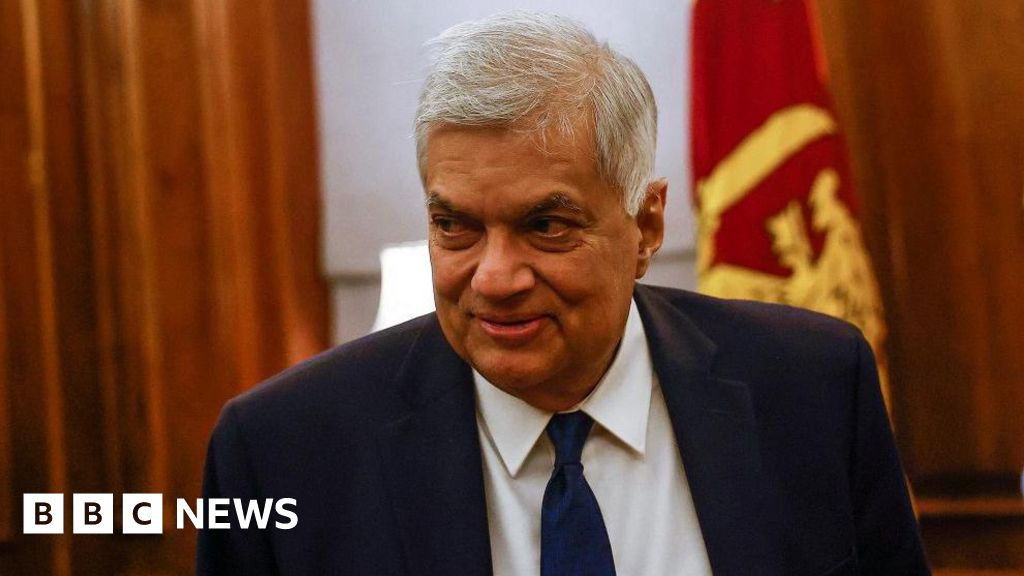 |
|
The arrest of former Sri Lankan President Ranil Wickremesinghe marks a significant moment in the island nation's political landscape. Wickremesinghe, who served as president from 2022 to 2024, stepped into the role during a period of immense economic turmoil. His predecessor, Gotabaya Rajapaksa, was forced to flee the country following widespread public unrest triggered by the country's worst-ever economic crisis. Wickremesinghe's ascension to the presidency was seen by many as a stabilizing force, a leader capable of navigating the country through its financial woes. He was widely credited with initiating the process of economic recovery, implementing policies aimed at restoring stability and attracting foreign investment. However, his tenure has now been overshadowed by allegations of misuse of funds, leading to his arrest and potentially impacting the future of Sri Lankan politics. The arrest itself stems from an investigation into foreign trips taken by Wickremesinghe during his time as president. Specifically, the focus is on a stopover made in the United Kingdom in 2023, en route from a G77 summit in Cuba. The Criminal Investigations Department (CID) alleges that this stopover, which included Wickremesinghe and his wife attending a University of Wolverhampton ceremony, constituted a private visit for which state funds were improperly utilized. Wickremesinghe has vehemently denied these allegations, but the investigation, initially referred to a court in June, has now culminated in his arrest. This situation presents a complex legal and political challenge for Sri Lanka. On one hand, it underscores the commitment to accountability and transparency in government, even at the highest levels. On the other hand, it raises concerns about potential political motivations and the potential for the arrest to destabilize the fragile political equilibrium that has been achieved in recent years. The fact that Wickremesinghe is the first former president to be arrested in Sri Lanka adds another layer of significance to this event, setting a precedent that could have far-reaching implications for future political leaders.
Beyond the immediate legal implications, Wickremesinghe's arrest has the potential to reshape the political landscape of Sri Lanka. Wickremesinghe has been a fixture in Sri Lankan politics since his first election as a Member of Parliament (MP) in 1977. Over the decades, he has held various key positions, including serving as prime minister on six separate occasions. He comes from an affluent family with deep roots in politics and business, which has undoubtedly contributed to his long and influential career. He's a lawyer by profession. He also played a crucial role in cleaning up the image of the United National Party (UNP) after assuming its leadership in 1994. He implemented a disciplinary commission to weed out corrupt members, signaling a commitment to ethical governance. Despite his extensive political experience and his efforts to reform the UNP, Wickremesinghe consistently faced challenges in his pursuit of the presidency. He made numerous bids for the top office over the years, only achieving his long-held ambition in 2022 after Rajapaksa's departure. Even then, his party was significantly weakened, having been almost entirely wiped out in the 2020 elections, leaving him as the sole UNP representative in parliament. His loss in the 2024 election to Anura Kumara Dissanayake further underscores the shifting political dynamics in Sri Lanka. Dissanayake's left-leaning platform resonated with a population increasingly disillusioned with traditional political establishments and eager for change. Wickremesinghe's arrest could further erode public trust in the UNP and provide an opportunity for Dissanayake and other opposition leaders to consolidate their support. The unfolding legal proceedings will undoubtedly be closely watched by all political factions in Sri Lanka, as they could have a profound impact on the balance of power and the future direction of the country.
The international community is also likely to be paying close attention to the developments in Sri Lanka. The country has been actively seeking international assistance to address its economic challenges, and the perception of political stability and the rule of law is crucial for attracting foreign investment and securing financial aid. Wickremesinghe's arrest could raise concerns among international investors and donors, potentially hindering the country's efforts to recover from its economic crisis. Transparency and fairness in the legal proceedings will be essential to maintain confidence in Sri Lanka's commitment to good governance and its ability to attract international support. The arrest also raises questions about the motivations behind the investigation and the potential for political interference in the judicial process. It is crucial that the investigation is conducted impartially and that Wickremesinghe is afforded due process under the law. Any perception of political persecution could damage Sri Lanka's reputation and undermine its efforts to strengthen its democratic institutions. Furthermore, the arrest could have implications for Sri Lanka's relations with other countries. The focus on the UK stopover could strain diplomatic ties, particularly if the investigation reveals any irregularities in the use of state funds. It is important for both countries to handle the situation with sensitivity and to avoid any actions that could escalate tensions. Ultimately, the arrest of Ranil Wickremesinghe represents a complex and multifaceted challenge for Sri Lanka. It highlights the ongoing struggle to combat corruption and promote accountability in government, while also underscoring the importance of maintaining political stability and attracting international support for economic recovery. The outcome of the legal proceedings and the subsequent political fallout will have a significant impact on the future of Sri Lanka and its role in the international community. As the events unfold, it is crucial that all parties involved act with restraint and prioritize the best interests of the country and its people.
Source: Ranil Wickremesinghe: Sri Lanka's former president arrested
